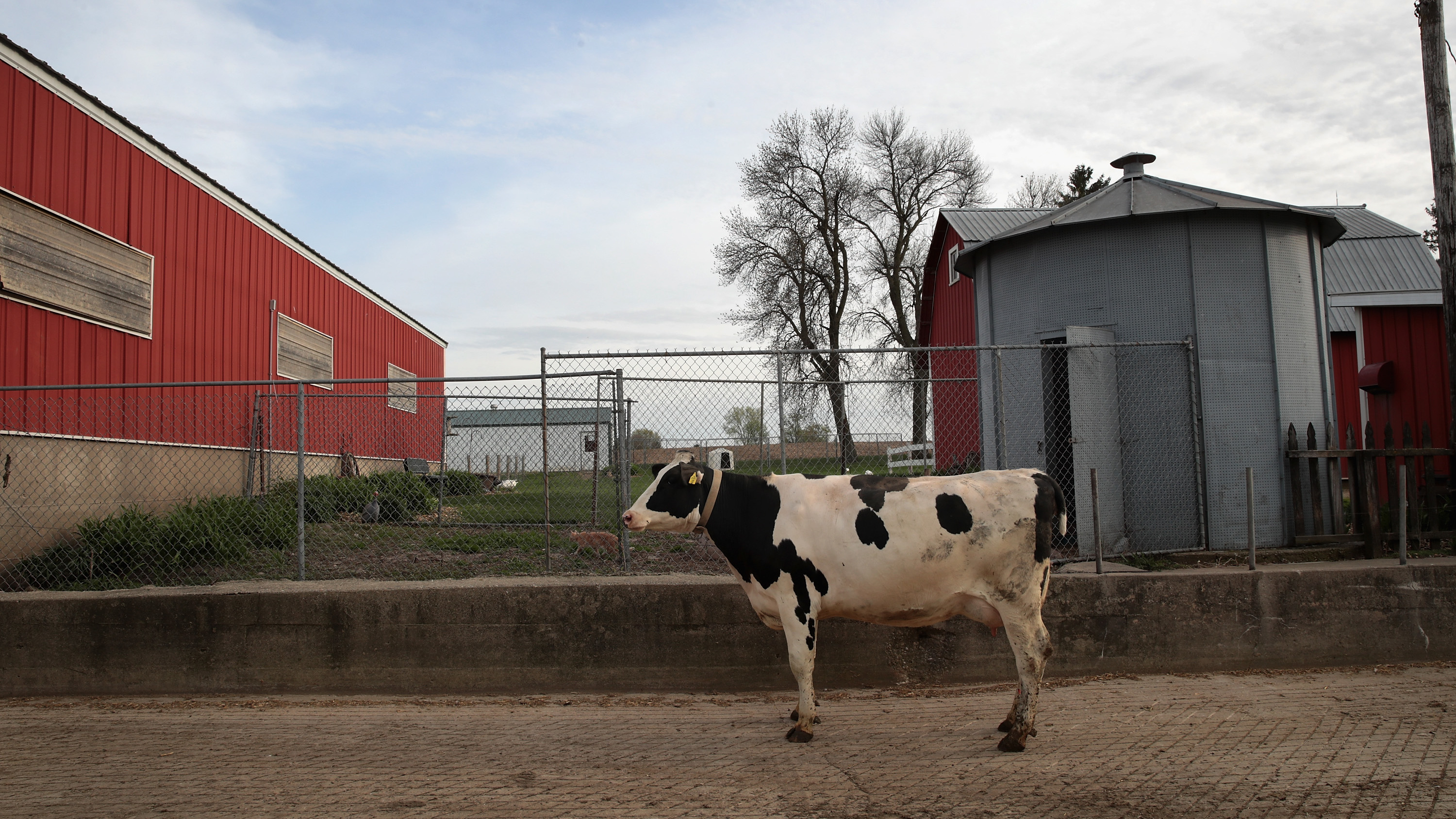These Are Dire Times For American Dairy Farmers
Unless you make your living through milk, you probably don't know how tough life is for America's dairy farmers in 2018. A half-gallon of milk costs the same—a dollar and change—at my grocery store as it did years ago. There's still yogurt on supermarket shelves. Nothing looks amiss.
But the situation on dairy farms, especially in the Northeast, is reaching a crisis level. Numerous mainstream media outlets have covered the plummeting profits in the dairy industry, an implosion that's leading family farmers to walk away from their farms, or even worse, to take their own lives.
The New York Times reported on a rash of dairy-farmer suicides in New York, where the economic picture is especially bleak. There, low milk prices mean most farmers aren't earning what it costs to even get that product from cow to carton. A New York farmer's suicide in January prompted Agri-Mark, a cooperative that buys milk, to include numbers for mental-health and suicide-prevention hotlines in a recent newsletter informing farmers that milk prices were likely to drop again.
"Something's wrong with this industry, very wrong," Vermont dairy farmer Phil Parent tells NPR's The Salt. While he makes less than $14 per 100 pounds of milk he produces, Canadian farmers just over the border from his farm make almost twice that much. (American farmers made about $25 per 100 pounds of milk in 2014.) That's because Canada has a quota system—and higher retail milk prices—that help its dairy farmers earn a better living.
In a piece that calls these "heartbreaking times" for the dairy industry, Farm Bureau News reports that low milk profits have led 10 percent of American dairy farms to shut down in just the past year. Even if prices picked back up in the future, the article predicts it's unlikely that the small family farms now closing their doors will reopen later. Farm Bureau is working with the USDA to develop a program similar to crop insurance that would help insulate farmers from price dips like this. In the meantime, though, Farm Bureau Federation president Zippy Duvall writes: "This doesn't feel like business as usual, even for dairy."
